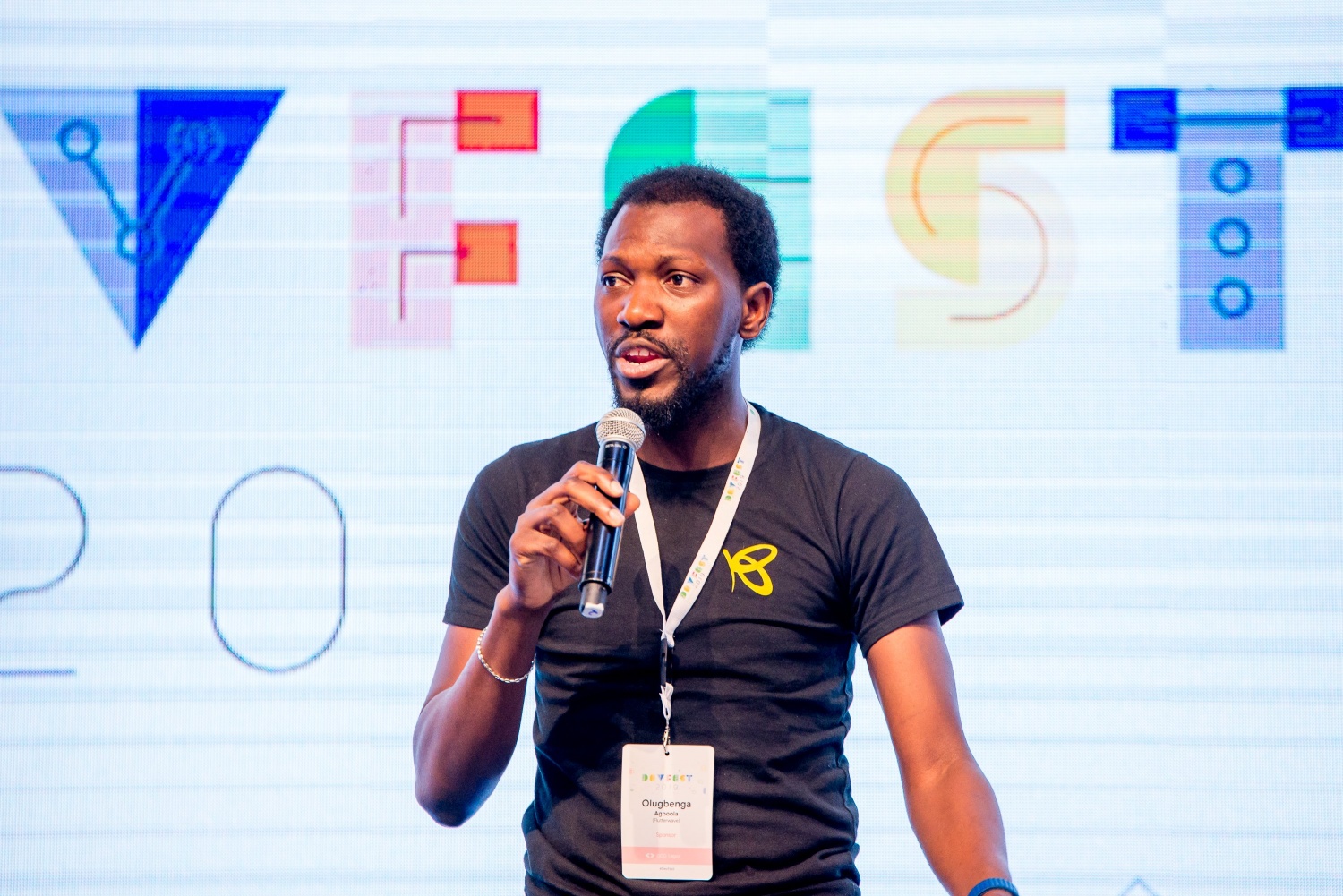Allegations against Flutterwave
- Posted on April 14, 2022
- Editors Pick
- By Faith Tiza

Flutterwave is a Nigerian fintech firm that provides
payment infrastructure to international merchants and payment service providers
across Africa. Iyinoluwa Aboyeji, Olugbenga Agboola, and Adeleke Adekoya formed
the company in 2016, and it is based in San Francisco, California, with
operations in Nigeria, Kenya, Ghana, South Africa, and seven other African
nations.
Flutterwave received a $170 million Series C
fundraising round in 2021. This was the greatest amount ever raised by an
African digital business at the time, and it gave Flutterwave a valuation of
over $1 billion, making it a unicorn. [1] Y-Combinator, Visa Ventures,
Mastercard, Avenir Growth Capital, and Tiger Global Management are among the
investors in Flutterwave. Flutterwave also raised a US$250 million Series D
fundraising round in 2022, valued at about US$3 billion.
Flutterwave launched Send, an African-focused
remittances service, in December 2021, and immediately named Ayodeji Ibrahim
Balogun, better known as Wizkid, a Nigerian Grammy Award-winning international
musician, as its global ambassador to further promote the company's brand among
Africans in the diaspora.
Flutterwave and AfroSport Network teamed up in January
2022 to broadcast the 2021 Africa Cup of Nations free-to-air from 9 January to
6 February 2022.
Flutterwave, Africa's most valuable startup, is under
fire for alleged questionable commercial and personal actions by Olugbenga
Agboola, the company's founder and CEO.
Allegations
against Agboola
Agboola is alleged to have created a phantom
'co-founder' identity to give himself more shares in the company's early days,
and offered share prices below the company's valuation to employees who wanted
to cash in on their vested options, according to a story published Apr. 12 on
West Africa Weekly, a Substack newsletter by David Hundeyin, a Nigerian
journalist. According to the story, the employee stock sales went to an
investment vehicle owned by Agboola.
Employees were forced to sell their stock options to
an investment vehicle run by Olugbenga Agboola, according to
Hundeyin. According to Hundeyin's report, they sold for less than market
value, as estimated by Agboola, and this is classified as insider
trading. But first, let's look at how employee stock options work.
Employee stock options (ESOs) are a type of
compensation that a firm offers to its employees. This allows them to purchase
shares in the company at a defined price. However, the stock must have been
vested before they can access the shares.
Vesting simply means that you can now exercise or
purchase the company's stock. It happens gradually, so if the contract
specifies a four-year vesting time, you won't be able to completely exercise
your stock option until four years have passed since the contract was signed.
You may be able to access the vested portion in some
situations. Let's have a look at an example. Chike is the owner of ESO in XYZ.
He had to work for the corporation for four years before exercising his option,
according to the contract. He has access to 25% of the shares in the first
year. If he decides not to, he will be able to access half of the ESO in the
second year, and this will continue until the fourth year when he will be able
to access 100%.
ESOs are only beneficial if the company's stock price
climbs above the agreed-upon price. So, if Chike is advised that the best time
to buy the stock is when it increases to $3, he can buy it for $3 if it rises
to $4.

So,
was there any insider trading going on?
This employee appears to have exercised his option to
buy but subsequently wished to sell those shares, according to a screenshot
supplied by Hundeyin on February 28, 2021. They are offered the option to sell
at $3.4999, which they accept after rounding up to $3.5.
He also allegedly did not disclose to Access Bank, his
previous employer, that he was working for them while creating Flutterwave in
the early days of the latter, so taking undue advantage of his position and
assets at the bank. At Flutterwave, there was also talk of sexual interactions
with subordinate female employees.

Quartz has requested an official word from Flutterwave
and will update the article once one is received. But here is the story of one
of the supposedly harassed females who spoke out:
Clara Wanjiku, an ex-employee of Nigerian payment
business Flutterwave, released a Medium post on Monday, April 4, criticizing
the company's CEO, Olugbenga Agboola, for "5 years of continual
harassment."
Wanjiku says in the post that she was not paid her
"dues" after departing her position as Head of Implementation at
Flutterwave (Rest of Africa) in 2018, and she sued Flutterwave for it.
Clara said in her article that she received calls from
a number of Flutterwave employees after she filed her lawsuit, requesting to
talk and address the issue outside of court. Flutterwave eventually paid her
"dues."
There's more, though...
The company also accused Wanjiku of being behind a
Twitter account that accused some male members of Flutterwave's management of
sexual harassment, according to Wanjiku.
She claims Agboola "sabotaged" her attempt
to acquire a job at a Nigerian bank after she left Flutterwave by telling her
she was a lousy worker.
Wanjiku filed a lawsuit against Flutterwave for
damages because the corporation failed to remove her as the primary contact on
their M-Pesa account. After the account reported a fraudulent transaction, the
police pursued Wanjiku and her family.
Wanjiku sought $900,000 in damages for the claimed
negligence, but the court only granted her $2,500, which she refused to accept.
These allegations come at a time when African startups
with toxic workplace environments are being targeted. TechCabal is looking into
this story and has reached out to Wanjiku and Flutterwave for comment.
Now Clara Wanjiku Odero is the CEO and Co-Founder of
Credrails and holds a Bsc from Kenyatta University.
The connection between Agboola and Flutterwave
The 37-year-old Agboola is one of Africa's most
well-known entrepreneurs, thanks to Flutterwave's status as an early mover in
Nigeria's online payments sector and its unparalleled $3 billion value. He has
a reserved demeanor and offers few media interviews, although he appears on a number
of lists aimed at highlighting African achievement, including Quartz Africa's
2019 innovators, Fortune's 2020 list, and TIME's 2020 list (2021).
Agboola's profile has grown beyond his leadership at
Flutterwave in the last year, thanks to a flurry of personal investments in
other African firms. A few hours after yesterday's West Africa Weekly piece
went up, he won a Business Insider award for "Tech Investor of the
Year."
Flutterwave has also ventured into corporate venture
capital, co-leading a $3.4 million deal for Dapio, a UK-based fintech. The
company's $250 million financing in February would be used to fund investments
and aggressive marketing.
Flutterwave's
wings reveal flaws
However, suspicions about Agboola and Flutterwave have
grown in recent days after a former employee, Clara Wanjiku Odero, accused
Agboola of bullying and the company of incompetence that led to fraud. Despite
Flutterwave's denial, Odero, who is now the CEO of a Softbank-backed Kenyan
fintech called Credrails, did not respond to Quartz's calls for comment. A
story that appeared to depict her in a negative light while extolling
Flutterwave's unicorn ride may have led her to write about her experience at
the company. During a retreat in Ghana this year, the company's leadership, including
Agboola, were interviewed for the piece.
Following that private trip, the corporation is now
facing public scrutiny over a number of issues raised in this week's exposé,
including a rumored US Securities and Exchange Commission ethics inquiry in 2018.
(Flutterwave is incorporated in Delaware and headquartered in California). The
SEC did not confirm or deny the inquiry, citing confidentiality concerns.
Former Flutterwave co-founder Iyinoluwa Aboyeji admitted there was one, but
contested the Substack journalist's assessment.
The majority of observers have rekindled their fury at
Nigerian companies' corporate dysfunction and bad work culture. Some people are
concerned that international investors, who are increasingly pouring money into
African businesses, may be frightened. If Flutterwave answers the claims,
the next step might be vindication for Flutterwave and the ecosystem, or a
dance between damage control and course correction by interested parties.
Or, as Matt Flannery, co-founder of Branch, a loan
service that operates in Nigeria and Kenya, predicts, further revelations that
amplify the shockwaves already sparked.


Be the first to comment!
You must login to comment